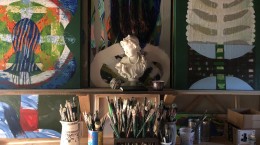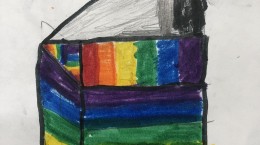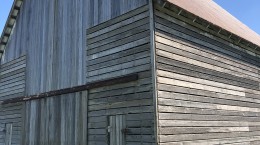Subscribe to Blog via Email
Recent Posts
Recent Comments
- Dante Ventresca (RSS) (335)
- Rebecca King (RSS) (61)
- Brad King (RSS) (19)
Authors
Central Library and the Grand Canyon
- 12 years ago
- 0 Comments
- stories
- Central Library, community, cooperation, encouragement, hospitality, Indy Loves You, place, place making, story
Standing on the south rim of the Grand Canyon with my father a few years back he commented, “It’s too big.”
My dad doesn’t know how to sip a moment. He gulps down places as if he were dying of thirst for experience. And if the experience of a place is too big to fit into his mind? What does he do? He creates a shortcut in order to get a handle on the fact that we are all part of something way bigger, way more magnificent, more sublime than we know. He comes up with, “It’s too big.”
The Grand Canyon, like any of the wonders of the world, short-circuits our shortcuts. We find many ways for our defense mechanisms to take over our daily lives. Our to do lists will push us right past a rose-colored dawn. Talking on the phone we completely miss the gaze of lovers out on a stroll. We often take the beauty out of the beautiful day.
So, it’s easy to get starry-eyed, or canyon-eyed, when we encounter the “too big”. This is one of the reasons why we travel, why we buy travel guides, why we google countries, towns, neighborhoods, places. We’re looking for our next remarkable experience. We are seeking out a good fit between where each of us is in our lives and where we are on the planet.
We already know from Hollywood that there is no place like home. But how to make that realization a reality that can be put to good use? The answer is in the people. One of our own local grand canyons is the Central Branch of the Marion County Public Library. Yes, it has its flashy architecture, its big windows, its views of Indy. But, for me, it’s the librarians that give this place local grand canyon status.
I go in and up to the fourth floor reference desk with my daughter and I begin speaking. It sounds like gibberish. “I’m trying to figure out if there is a name for when an artist puts many different studies on a single large sheet of paper? I’m thinking about building a Japanese tea house in my backyard. I also need help trying to find simple contraption designs.” My daughter adds to the list, “Black holes please.”
I have no idea where my faith in reference librarians comes from except that they have not only saved my life but they have given me directions that when followed helped my career, my cause, and strengthened my capacity for empathy. They have solved as many problems as I have been able to come up with. I know they are not looking into my soul. But it sure feels like it sometimes.
The librarian at the fourth floor reference desk, turns her computer screen away from her face. She looks intently at me, grabs a few scraps of paper, and begins to jot down notes. After I am finished she hands me a couple of reference numbers, points me in the direction of the stacks, and says, “I’ll need a few minutes. Take a look around and come back.”
My daughter and I proceed to do what comes naturally to all human beings if left alone in a library – we get lost in the stacks. Winding our way through a seemingly endless maze of book-walled aisles we pull down obscure volumes, sit on floors, find our way through the world from ancient times to tomorrow. We talk about the details we encounter, point to pictures, read passages to each other. When we’re through we carry our books to the reference desk where the librarian is waiting for us as if she were a river guide fishing us out of the swiftly moving Colorado. She takes out a small stack of books she has gathered in response to our questions. It seems to me that the title “librarian” is an anemic description. She was a research whisperer.
I could see from the books that she not only listened and heard what I said but that she also heard what I didn’t say. She found information between my words. She somehow was able to draw conclusions about what I was really looking for. She politely found answers to my questions but her focus was on the questions that I hadn’t yet asked myself – the questions that I would be asking once I got back home. It is an eery feeling when a stranger appears to have a better handle on your thoughts than you do.
Jeffery Kluger, in his book “Simplexity” describes the almost supernatural powers of Michael Coy and Michael Brasky, the owners of the M. Coy bookshop in Seattle, this way: “Coy and Brasky stir all these thoughts together, adding this or that odd detail or this or that strategy from a lifetime spent bookselling, and do it all instantly – tiny synapses flashing tiny signals among billions of neurons, summonming up volumes of experiences stored all over the brain. Then they approach a shopper with the most important thing they have to offer: a recommendation, a suggestion for a single one of the twenty thousand volumes they keep on their shelves.”
I find some relief in the idea that this librarian doesn’t wield other-worldly powers and is simply brilliant in her mastery of her craft. My daughter and I take the books from the counter. The phone on her desk rings. She must answer it. The only thing to do is to say thank you. I mouth the words to her as she listens intently to the next person in need of a research whisperer. She smiles. As we turn to walk away I see her pull out a few scraps of paper. The phone is squeezed between her chin and shoulder like a violin. She begins taking notes. “Wow-” I think to myself, “This is too big.”



